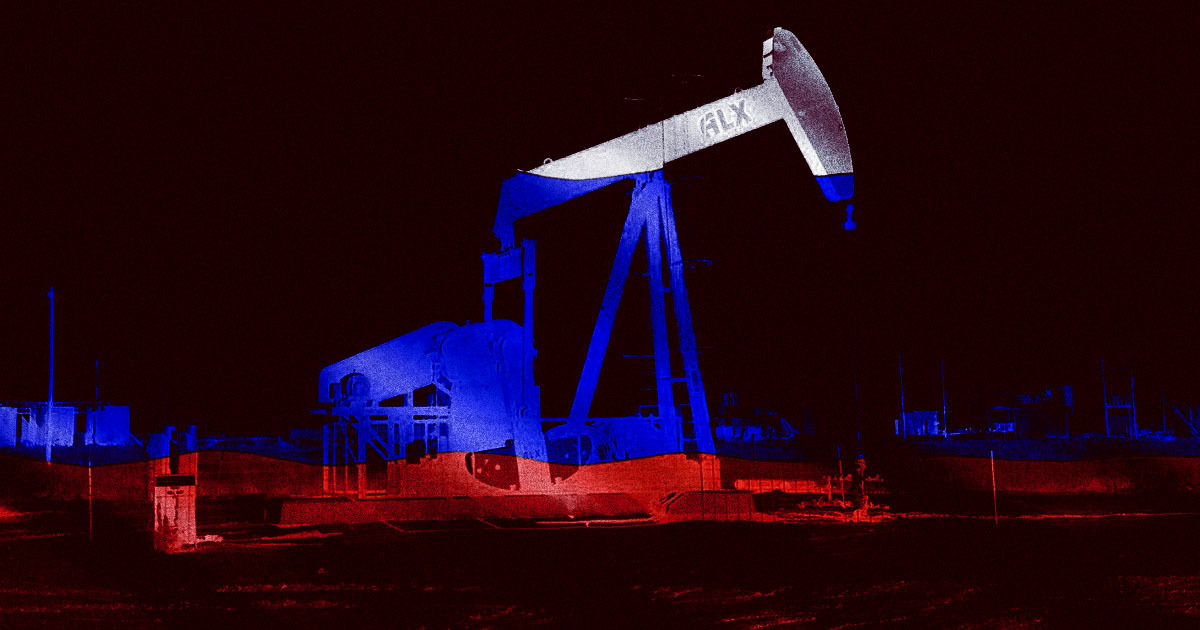RIO DE JANEIRO, BRAZIL – The West is only hurting itself with the oil embargo against Russia, while Moscow sees record revenues from the deal. It is shooting itself in the foot because many countries have no interest in joining these sanctions and harming themselves.
One might think that in Washington, Brussels, London, Berlin & Co sit economic experts who think about the effects of sanctions on all sides.
But obviously, the ideologues prevail, who think less about economics or do not think far enough.
This is also evident with regard to sanctions on Russian oil and natural gas. For while the Western (and not only) economies suffer, Moscow earns splendidly from the sale of oil and can thus at least cushion many of the effects of the sanctions.

Indeed, recent data show that Russia’s oil and gas revenues hit a record high in April, rising to 1.8 trillion rubles in a single month, up from 1.2 trillion in March, leading to the following startling figures.
“After just four months, Russia’s federal budget has already received 50 percent of the projected oil and gas revenues for 2022 (9.5 trillion).”
Bloomberg also confirmed the developments, citing the International Energy Agency data. According to the Paris-based IEA’s monthly market report, Moscow earned about US$20 billion a month in 2022 from crude oil and product sales of about 8 million barrels a day.
Something that was predictable. Because Washington has completely overestimated itself as far as the sanctions regime is concerned. After all, Russia is not Venezuela, North Korea, or Iran. Most countries in this world – out of their own economic interest – have not joined the punitive measures.
Russia can continue to sell oil and gas and at a much better price than before.
New Delhi, for example, has just signed a deal with Moscow and gets oil at a discount of 20 to 25 dollars on the market price.
Fertilizer – enormously important for Indian agriculture – also continues to be supplied from Russia because the Indians are not joining the Western sanctions.
New data! #Russia's oil and gas revenues hit another record high in April. 1.8 trillion rubles in a single month, after 1.2 trillion in March. After only 4 months, Russia's federal #budget has now already received 50% of the planned oil and gas revenue for 2022 (9.5 trillion). pic.twitter.com/DKUGClchWG
— Janis Kluge (@jakluge) May 6, 2022
Likewise Brazil. President Bolsonaro knows how vital fertilizer is to the country and refuses to give in to U.S. pressure. And those are just two of the more prominent examples.
At the same time, the Americans and Europeans in particular (along with a few allies like Australia, Singapore, Japan, and South Korea) are tightening their grip, causing ever greater economic and financial hardship.
In the Global South, many commentators wonder why their countries should join these sanctions against Russia.
After all, who sanctioned the United States and NATO countries, for example, when they devastated Iraq, Libya, Syria, Afghanistan, and other countries?
The West is accused of acting hypocritically and applying double standards – even if the Russian action is not welcomed. But a certain pragmatism prevails, especially in the developing and emerging countries.
Especially when it comes to their own economies, high energy, and food prices in Sri Lanka for example, lead to massive unrest and instability. The leaderships of many poorer countries want to prevent this as much as possible.
In the short or long term, this could lead to the energy-intensive industry, in particular, migrating to countries where supplies – unlike in Europe – are secure in the longer term.
Thanks to cheap energy, Russia itself could also be a target for those companies whose focus is not primarily on the Western market.
Overall, however, the figures for Russia show that the sanctions do not have the effect they are officially supposed to have.
But then the question arises: If one assumes that those responsible in Washington, Brussels & Co. know what they are doing – why are they harming their own economies so much with these sanctions and embargoes, even though the effects on Russia itself are negligible in comparison?

